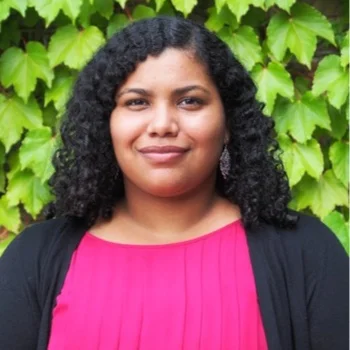publications / in-press / peer-review / curriculum / literary nonfiction
peer-review
Gray, S., Sterling, E., Aminpour, P., Goralnik, L., Jordan, R., Singer, A., Wei, C., Akabas, S., Giabbanelli, P., Hodbod, J., Betley, E., and Norris, P. 2019. “Assessing (social-ecological) systems thinking by evaluating cognitive maps.” Sustainability.
Goralnik, L. and Marcus, S. 2019. “Resilient learners, learning resilience: Contemplative practices in the sustainability classroom.” New Directions in Teaching and Learning, special issue: Teaching about Sustainability Across Higher Education Coursework.
Remenick, L. and Goralnik, L. 2019. “Applying the Andragogical Model to an outdoor science education event.” Journal of Continuing and Higher Education.
Piso, Z., Goralnik, L., Libarkin, J., and Lopez, M.C. 2019. “Types of urban agriculture stakeholders and their understandings of governance.” Ecology & Society, 24 (2): 18.
Goralnik, L., Dauer, J. and Lettero, C. 2019. “Classrooms Take Charge: Climate Learning and changemaking in the science classroom.” The Science Teacher.
Goralnik, L. and Nelson, M.P. 2017. “Field Philosophy: Environmental Learning and Moral Development in Isle Royale National Park.” Environmental Education Research, 23(5): 687-707.
Goralnik, L., Nelson, M.P., Gosnell, H., and Leigh, M.B. 2017. “Arts and humanities inquiry in the Long-Term Ecological Research Network: Empathy, Relationships, and Interdisciplinary Collaborations.” Journal of Environmental Studies and Sciences, 7(2): 361-373.
Jager, C., Nelson, M.P., Goralnik, L., & Gore, M. 2016. “Michigan Mute Swan Management: Exploring the Conservation Ethics of Invasive Species Management.” Human Dimensions of Wildlife, 21(3).
Goralnik, L., O’Connell, K.B., Schulze, M., & Nelson, M. P. 2016. “H.J. Andrews Forest Discovery: A Conceptual Framework for Interdisciplinary Interpretation and Empathy Development.” Proceedings of the 2015 Symposium for Experiential Education Research (SEER), Portland, OR. 30-34.
Goralnik, L., Nelson, M.P., Gosnell, Hannah, and Ryan, Leslie. 2015. “Arts and humanities efforts in the US LTER network: Understanding perceived values and challenges.” In R. Rozzi, F.S. Chapin, J.B. Callicott, S.T.A. Picket, M.E. Power, J.J. Armesto, and R.H. May Jr. (EDs.), Earth Stewardship: Linking Ecology and Ethics in Theory and Practice (pp. 249-269). Springer, Berlin.
Goralnik, L. and Nelson, M.P. 2015. “Empathy and Agency in the Isle Royale Field Philosophy Experience.” Journal of Sustainability Education, Volume 10. ISSN: 2151-7452.
Heinrich, B., Habron, G., Johnson, H., & Goralnik, L. 2015. “Critical Thinking Assessment Across Four Sustainability-Related Experiential Learning Settings.” The Journal of Experiential Education 38(4), 373-393.
Goralnik, L. “Otter Dance.” 2015. ISLE: Interdisciplinary Studies in Literature and Environment 22, 647-665. doi: 10.1093/isle/isv046 [research-based nonfiction]
Goralnik, L., Ferkany, M., Thorp, L. & Whyte, K.P. 2015. “Philosophy in the field: Care Ethics, Participatory Virtues and Sustainability.” Resilience: A Journal of the Environmental Humanities, Volume 1(3), Special Issue on pedagogy in the environmental humanities. JSTOR.
Goralnik, L., Dobson, T., & Nelson, M.P. 2014. “Place-Based Care Ethics: A Field Philosophy Experience.” The Canadian Journal of Environmental Education 19, 180-196.
Goralnik, L., Thorp, L., Rozeboom, D., Thompson, P. 2014. “Storytelling Morality: Ecofeminism, Agrarianism, and Pigs in the Field.” The Trumpeter 30(1), 15-32.
Goralnik, L, and Nelson, M.P. 2014. “Field Philosophy: From Dualism to Complexity Through the Borderland.” Dialectical Anthropology, Special Issue: Non-Anthropocentric Conceptions of Nature 38(4), 447-463.
Goralnik, L., Vucetich, J.A, and Nelson, M.P. 2014. “Sustainability Ethics.” In Achieving Sustainability: Visions, Principles, and Practices, Ed. Deborah Rowe (pp. 319-327), Detroit: Macmillan Reference. Encyclopedia essay.
Goralnik, L., Millenbah, K., Nelson, M.P., & Thorp, L. 2012. “An Environmental Pedagogy of Care: Emotion, Relationships, and Experience in Higher Education.” The Journal of Experiential Education 35(3), 412-428.
Habron, G., Goralnik, L., and Thorp, L. 2012. “Embracing the Learning Paradigm to Foster Systems Thinking.” International Journal of Sustainability in Higher Education 13(4), 378-393.
Goralnik, L. 2011. “Book Review: Harold C. Jordahl Jr. with Annie L. Booth: Environmental politics and the creation of a dream: Establishing the Apostle Islands National Lakeshore and James W. Feldman: A storied wilderness: Rewilding the Apostle Islands.” Journal of Environmental Studies and Sciences, Volume 1.
Goralnik, L. & Nelson, M.P. 2011. “Framing a Philosophy of Environmental Action: Aldo Leopold, John Muir, and the Importance of Community.” The Journal of Environmental Education, 42(3), 181-192.
Goralnik, L. & Nelson, M.P. 2011. “Anthropocentrism.” in Callahan, D., Chadwick, R., Singer, P., eds. Encyclopedia of Applied Ethics, 2nd ed. London: Elsevier. Encyclopedia essay.
Goralnik, L. 2011. “Ecofeminism.” Encyclopedia of Environmental Issues, 2nd ed. Craig W. Allin (Ed.). Ipswich, MA: Salem Press. Encyclopedia Entry.
curriculum
O’Rourke, M., Hall, T.E., Boll, J., Cosens, B., Dietz, T., Engebretson, J., Goralnik, L., Piso, Z., Valles, S., Whyte, K. “Values and Responsibility in Interdisciplinary Environmental Science: A Dialogue-Based Framework for Ethics Education.” Environmental Ethics Graduate Curriculum. (http://eese.msu.edu/)
Goralnik, L., 2018. Schulze, M., and O’Connell, K. “Discovery Trail: Digital Field Learning Curriculum for Empathy, Sense of Place, and Conservation Science Learning.” Interactive iPad Middle and High School Curriculum.
Goralnik, L. 2019. “Critical Reflection and Community Engagement: Classrooms Take Charge Carbon and Climate Education.” With Jenny Dauer and Carly Lettero. Service Learning Middle School Curriculum. (http://classroomstakecharge.org)
literary nonfiction
Goralnik, L. 2017. “Digging to Ascend.” The Turnip Truck, 3(1), Summer. Nonfiction.
Goralnik, L. 2015. “Idol Worship.” Soundings Review, Winter 2015. Nonfiction.
Goralnik, L. 2014. “Foredune.” Fourth River: A Journal of Nature and Culture. Chatham University: Pittsburg, PA. Issue 11, spring 2014. Nonfiction.

















